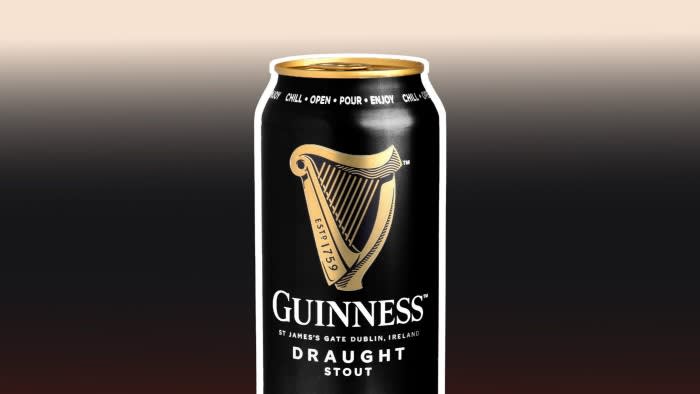A rare bright spot at Diageo’s January results presentation was the rising popularity of Guinness, the famous Irish stout that became the UK’s favourite beer last year.
CEO Debra Crew said the “Guinnfluencers” on social media were key to the brand’s success. She told reporters that consumption among women had increased by 24 percent, with much of the growth driven by consumers aged 25 to 45 in the U.K. and Ireland.
Guinness, long associated with Irish pubs, rugby and older male drinkers, has found new consumers thanks to changes in marketing strategy. Pubs in London’s Soho now teem with cool young drinkers of the stout, echoing the American hipster appropriation of working-class beers like Pabst Blue Ribbon and Michelob.
Meme accounts like @real_housewives_of_clapton and @shitlondonguinness have contributed to Guinness’s newfound viral status, which reached a fever pitch two weeks ago when designer JW Anderson showed a collection of sweaters emblazoned with the Guinness logo on the runway during Milan Fashion Week.
Anna MacDonald, marketing director of Guinness UK, said she wasn’t sure how much of the boom was due to the viral effect and how much was due to its own marketing strategy. “I think it’s a bit of both… It’s a virtuous circle,” MacDonald said. “But you have to be the kind of brand that can thrive in that space and embrace it.”
Even @shitlondonguinness, which details the poor quality of Guinness served in London pubs, is a sign of how much people care about the brand, MacDonald said, noting that the account has grown in followers across the country as demand has grown there too.
Diageo’s beer portfolio has long lagged behind its spirits portfolio, which includes brands such as Casamigos tequila and Smirnoff vodka. The company has been slow to sell off its beer assets, most recently Guinness Nigeria, a super-strong version of the stout brewed in the West African country.
However, since the post-Covid-19 drop in spirits sales, that trend has been reversed, thanks almost entirely to the growth of Guinness.
Beer sales grew 7 percent in Europe and 3 percent in the US in the six months to December, while spirits sales fell 4 percent in both regions.
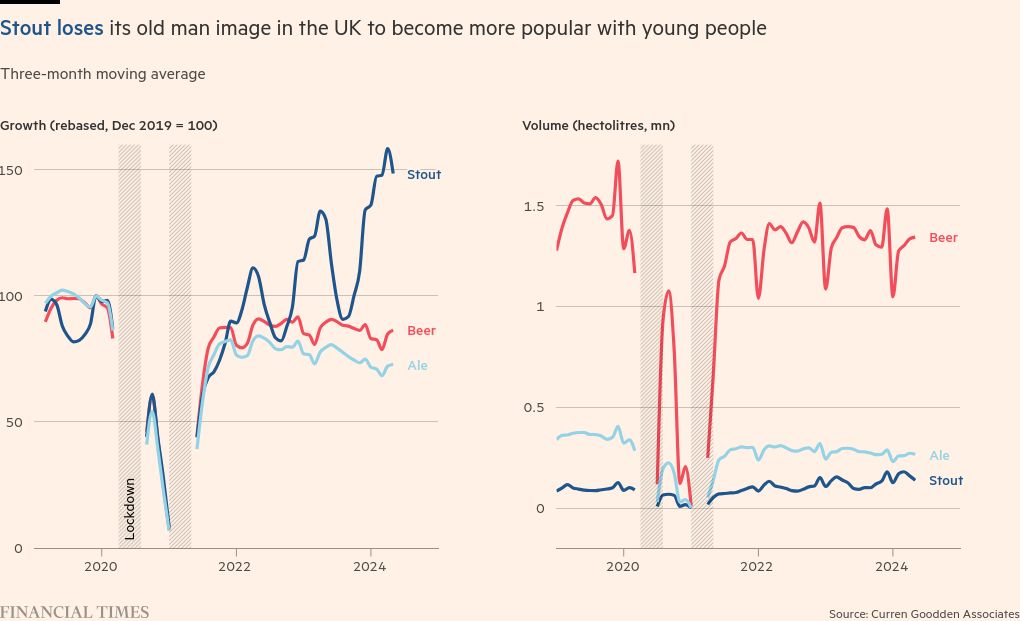
Guinness sales in Europe rose 24 percent, driven by drinkers in the UK and Ireland. Sales of non-alcoholic Guinness 0.0, on the other hand, more than doubled.
“Diageo’s beer business is becoming a bigger contributor to the group’s growth,” said Citigroup analyst Simon Hales. “After a number of years of underperformance from its larger brewers, Diageo’s beer portfolio is now growing faster than they are, a fact that we don’t think is fairly reflected in the group’s share price.”
Analysts will be watching for a recovery in spirits sales ahead of the publication of annual results this month after a period of destocking as retailers sold off stock they built up during the Covid boom.
According to food and beverage consultancy Curren Goodden Associates, the volume of stout sold in pubs rose 14 percent year-on-year in the latest quarter, while sales of ale and craft lager fell 8 and 9 percent respectively, while total beer volume fell 4 percent.
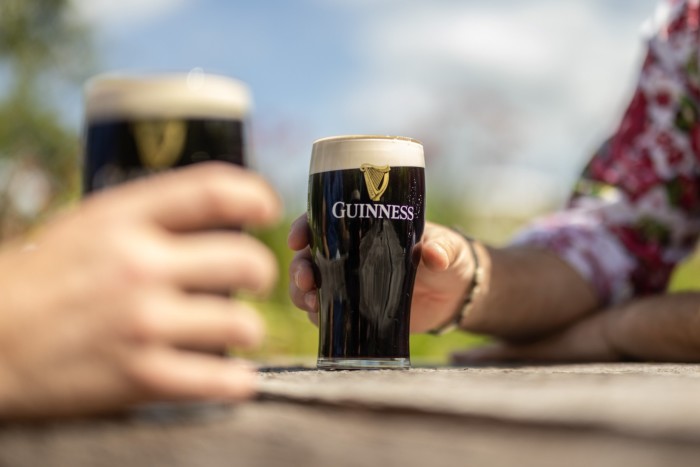
“What we’re definitely seeing is a new customer,” said Mark Brooke, managing director of Admiral Taverns’ managed business Proper Pubs. “Guinness has been able to appeal to a more female audience,” while maintaining its relationship with its traditional consumer.
Guinness was ‘less gaseous’ than lager and had fewer calories, and was therefore more popular with women, Brooke reasoned.
MacDonald said Diageo had done nothing specific to target women. Instead, she attributed it to a simple change in how the team focused its media spend to appeal to all consumers, not just the older male demographic that once formed its core.
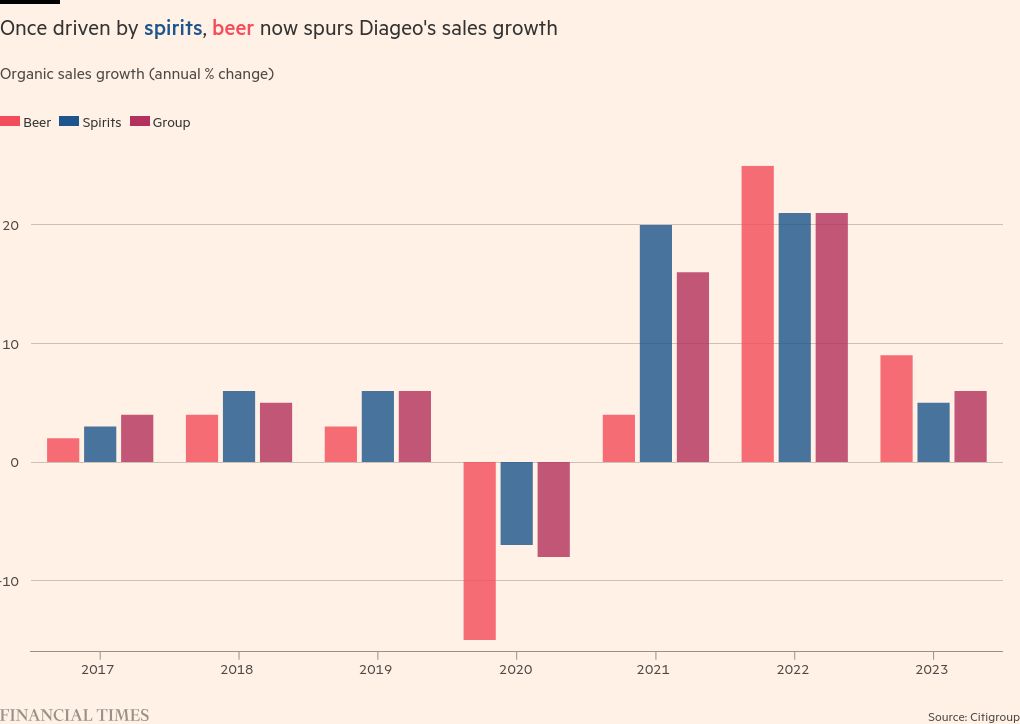
“One thing that is true for women, and it is true for all people, but especially women, is that humanity is important,” she said. “Igniting the humanity that has always been at the heart of our best marketing at Guinness is part of the appeal.”
“I like Guinness because a pint actually makes you feel fatter at the end of it,” says Maria Aguinaga, 35, as she enjoys a pint with colleagues after work outside the Hand & Shears pub near London’s Smithfield Market.
For women, “there’s a rebellion in drinking pints,” said Ali Dunworth, author of A compendium of Irish pintsnoting that pubs were traditionally mostly for men and that women used to only get half a pint.
Guinness remains hugely popular in its home market, where the stout has been brewed since the 1770s. But Dunworth said some customers had been turned off by price rises in pubs since early last year and were turning to rival stouts.
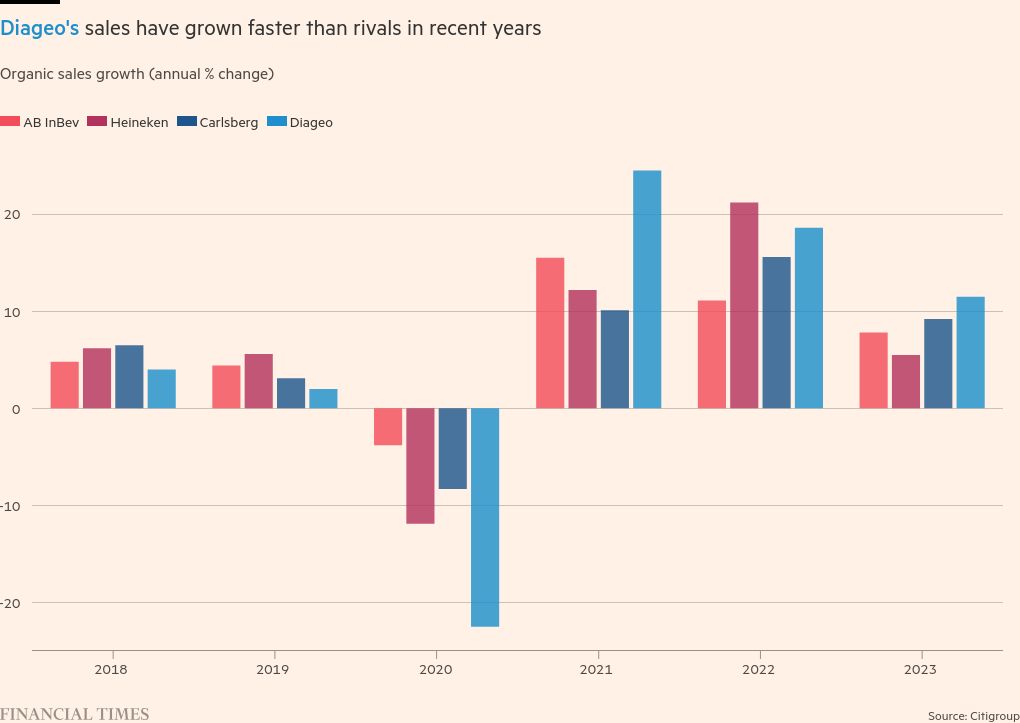
Her own local pub in Maynooth has installed a tap for Murphy’s, a stout rarely seen in Irish pubs outside the south of the country. “Price-sensitive customers go for Murphy’s,” she said.
Consumers, squeezed by the cost of living, have cut back on spending on pricier drinks after spending heavily on making cocktails at home during Covid-19 lockdowns. Beer sales, however, have not fallen as drastically and volumes are starting to return to normal, helped by warmer weather and sporting events such as the 2024 European Football Championship.
MacDonald said tastes had shifted toward classic and established brands after a period of “anti-brand” consumer sentiment, exemplified by the rise of craft beer. “They were looking for the independent, anti-establishment brands,” she said. “But now it’s come full circle with Gen Z.”
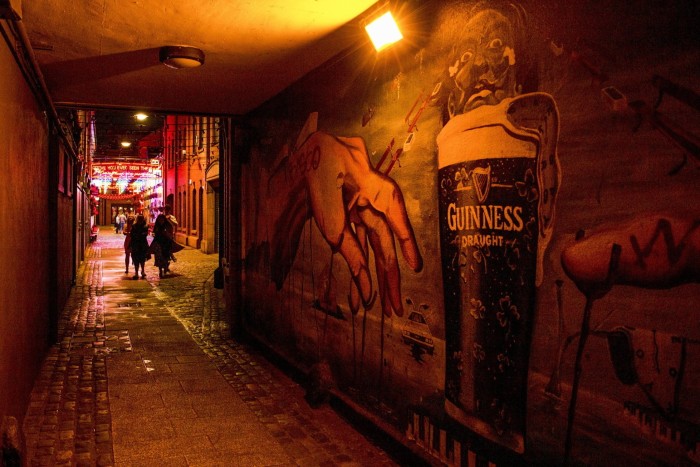
Despite the new consumers, the company continues to benefit from Guinness’ association with rugby. Debra Crew assured the media during the January trading update that “rugby boys still like it”.
In the UK, 38 percent of rugby fans say their favourite drink is Guinness, a doubling since 2014, according to Fanzo, a pub discovery app for sports fans. The brand is the title sponsor of the Six Nations rugby tournament.
“As the audience for the Six Nations and rugby got younger, Guinness was able to ride that wave of penetration to a younger audience,” said Dominic Collingwood, co-founder of Fanzo.
Diageo hopes to replicate this success in football. Guinness last month signed a four-year sponsorship deal with the Premier League, which will begin in the 2024-25 season.
“A regular Guinness drinker won’t drink anything else,” says James Baer, CEO of Amber Taverns, which operates almost 170 pubs in the UK. He says there has been a two-fold increase in Guinness sales in the past year.
“If you drink Guinness regularly and there’s no Guinness in the pub and you’re with a group of friends, you’re probably wondering, ‘Can we get a Guinness somewhere?’” But with other brands, “you just go to that pub.”
